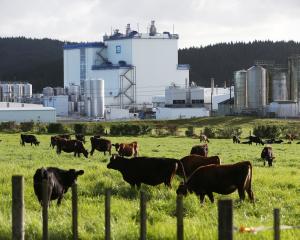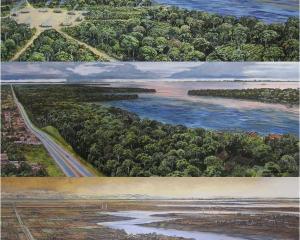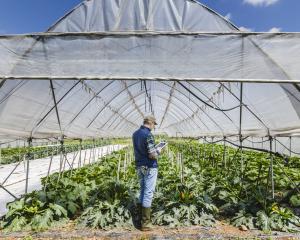

While the growth in food production is impressive, it comes at a considerable environmental cost.
The food system is directly responsible for a loss of biodiversity, loss of genetic resources, water pollution, soil degradation, over-allocation of water and contributing 25%-33% of global greenhouse gas emissions. Perhaps we could justify these significant environmental costs if the food system was doing a good job of feeding us, but it is not doing that.
The Food and Agriculture Organisation of the United Nations estimates that despite plentiful food, there are still 760 million people that are undernourished, while 2 billion are overweight or obese.
So if the food system is failing the environment and failing to nourish us, why does it persist?
De Shutter suggests that it persists because of a limited number of powerful vested interests that are "locked in" to the current system. As a result, solutions to address environmental and social impacts of food are put forward that emphasise technological change and increased resource efficiency, rather than changing the way food is produced and consumed.
"Food Systems and Natural Resources", the recent report by the International Resources Panel of the United Nations Environment Programme, is a good example.
The report documents global resource use implications of our food system and the associated social and economic impacts. It highlights the value of taking a food system approach by including all of the food system elements (environment, people, inputs, processes, infrastructure, etc.) that relate to the production, processing, distribution, consumption and waste in an effort to account for their impacts. It also identifies how food system elements shape and are shaped by food’s socio-economic and environmental outcomes.
The report provides an excellent case for changing the food system. Yet, the recommendations of what might drive that change are almost entirely focused on "resource-smart agriculture" that is focused on improving the efficiency of resource use. It suggests such things as more energy- and water-efficient processing, better feed conversion and higher nutrient efficiency that could be achieved with greater investment in research, development and technology around locally suitable seeds (or breeds) and management practices.
While resource-efficiency gains are important, far too often they become the only focus. A focus almost exclusively on resource-smart agriculture ensures that the "lock-in" to the existing global food system persists.
Urban agriculture and more localised food systems provide an alternative that could complement changes to the global food system and serve as a model for change. They are not conducive to mechanisation, they require more people-power. Their small scale makes mono-cropping and intensive chemical inputs such as fuel, fertiliser, herbicides and pesticides uneconomic. They need to be more in tune with the local climate, and thus rely on a wider range of crops, greater biologic diversity and have the potential to diversify diets as well.
From an environmental perspective, they have the potential to be much more energy efficient, without the need for vast investments in research or technology. They can be more natural.
From an economic perspective, they are inefficient, but the reliance on more local jobs in agriculture might be worth embracing. Particularly if the existing industrial food system is over-producing food, outstripping the environment and failing to provide proper nourishment.
- Sean Connelly is a lecturer in the University of Otago department of geography. Each week in this column, one of a panel of writers addresses issues of sustainability.












